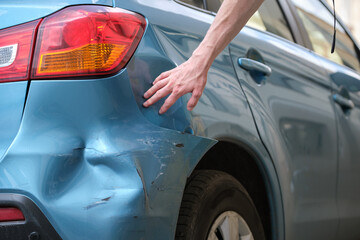Car accidents can be serious and result in life-changing injuries and extensive property damage. Depending on the state you reside in or where the accident was, there are a few options for pursuing compensation for property damage. A New Jersey car accident lawyer can help you navigate the legal process and the aftermath of an accident.
Is New Jersey a No-Fault State?
In the United States, states can be considered no-fault or at-fault in terms of car accident liability. In an at-fault state, compensation hinges on the ability to identify the liable party in the accident. Who caused the crash to occur? Once that has been discovered, the victim can file a claim with the responsible party’s insurance company or a lawsuit against the offender. They can collect compensation for medical expenses, damage to their vehicle, lost income, etc.
New Jersey falls under the category of a no-fault state. In a no-fault state drivers that were involved in an accident turn to their own insurance companies to recover compensation for their medical expenses and injury-related costs. New Jersey drivers are required to have at least the following insurance plans.
- $25,000 in bodily injury liability per person
- $50,000 in bodily injury liability per accident
- $15,000 in personal injury protection liability
- $25,000 in property damage liability per accident
How Can NJ Residents Collect Compensation for Property Damage?
As stated above, New Jersey is a no-fault state meaning that compensation for injuries and medical expenses will come from the individual’s own insurance company. But where does compensation for property damage come from?
Depending on the severity of the collision and the type of accident there might be thousands of dollars worth of damage done to the vehicle. What differentiates New Jersey’s no-fault laws from some other no-fault states is that when your car is damaged during an accident you have several options to collect compensation.
The first option is to file a first-party claim with your own insurance company. This will only work if you have the required coverage with your insurance. Your policy has to provide collision coverage or comprehensive coverage. Collision coverage protects you from damage to your car caused by a collision with another vehicle or object. Comprehensive coverage protects you from damage to your car caused by vandalism, theft, falling objects, or animals. If you have either of these policies you can collect compensation to cover property damage through your insurance provider.
If you do not have the required policies, you can also pursue compensation for property damage through a third-party claim. While no-fault states do not require liable parties to cover injury expenses, victims of car accidents can file a claim with the responsible person’s insurance to cover property damage. The other driver’s insurance will compensate you for repairing the damage to your vehicle.
Depending on the circumstances and the outcome of your third-party claim you might also be able to file a lawsuit against the negligent party. Speak with an attorney for advice during your claim or lawsuit.


